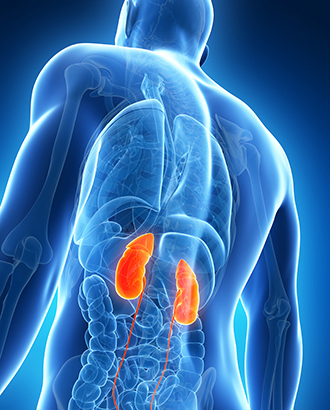A hope for kidney transplants for people living with HIV
 Cape Town | A study led by researchers at the University of Cape Town and supported by the South African Medical Research Council (SAMRC) has shown that people living with HIV who received kidney transplants from deceased HIV positive donors experienced high rates of overall survival and kidney graft survival over five years.
Cape Town | A study led by researchers at the University of Cape Town and supported by the South African Medical Research Council (SAMRC) has shown that people living with HIV who received kidney transplants from deceased HIV positive donors experienced high rates of overall survival and kidney graft survival over five years.
An observational study published today in the New England Journal of Medicine followed 51 study participants with HIV who received kidney transplants, beginning in 2008, from deceased donors with HIV in South Africa. The study, which is a collaborative effort between the National Institutes of Allergy and Infectious Diseases (NIAID), the University of Cape Town (UCT) with joint support from the National Institute of Health (NIH) and the SAMRC also found that five years after undergoing a kidney transplantation, 83.3% of people in the South African cohort survived and 78.7% still had a functioning transplanted kidney.
“This collaboration leverages expertise in both South Africa and the United States to address an urgent common problem,” says SAMRC President and CEO Glenda Gray. “Our combined efforts have the power to make sure people with HIV experiencing organ failure are not exempt from the longer, healthier lives that international HIV research has made possible for them.”
These findings were comparable to those from a 2010 NIAID-funded study, in which people living with HIV received organs from deceased donors without HIV, that reported an 88.2% overall survival rate after three years and a 73.7% kidney graft survival rate. Further, each recipient was fully virally suppressed at the time of transplantation, and researchers did not observe any increases in viral load among those who maintained consistent use of antiretroviral therapy (ART).
According to NIAID, such transplants became possible in the US with the passage of the HIV Organ Policy Equity (HOPE) Act in 2013. This law was intended to investigate routes that would increase the availability of organs for transplantation for people living with HIV, given the high frequency of HIV-related comorbidities that can necessitate organ transplantation. The HOPE Act of 2013 permits U.S. transplant teams with an approved research protocol to transplant organs from donors with HIV into qualified recipients with end-stage organ failure who are also living with HIV, a practice that may shorten the time people wait to receive a transplant.
NIAID researchers worked closely with UCT physicians and scientists to design and perform the co-funded study. All kidney transplantations and primary laboratory analyses occurred in South Africa, with additional laboratory support provided by NIAID’s Laboratory of Immunoregulation in the United States.
NOTE TO THE EDITOR:
For more information on the study: https://www.niaid.nih.gov/news-events/most-kidney-transplants-between-people-hiv-have-long-term-success
About the National Institutes of Health (NIH): NIH, the nation's medical research agency, includes 27 Institutes and Centers and is a component of the U.S. Department of Health and Human Services. NIH is the primary federal agency conducting and supporting basic, clinical, and translational medical research, and is investigating the causes, treatments, and cures for both common and rare diseases. For more information about NIH and its programs, visit www.nih.gov.
NIH...Turning Discovery Into Health®
About the South African Medical Research Council (SAMRC): The South African Medical Research Council (SAMRC) was established in 1969 with a mandate to improve the health of the country’s population, through research, development and technology transfer, so that people can enjoy a better quality of life. The scope of the organisation’s research projects includes tuberculosis, HIV/AIDS, cardiovascular and non-communicable diseases, gender and health, and alcohol and other drug abuse. With a strategic objective to help strengthen the health systems of the country – in line with that of the Department of Health, the SAMRC constantly identifies the main causes of death in South Africa. For more information, visit: www.samrc.ac.za

